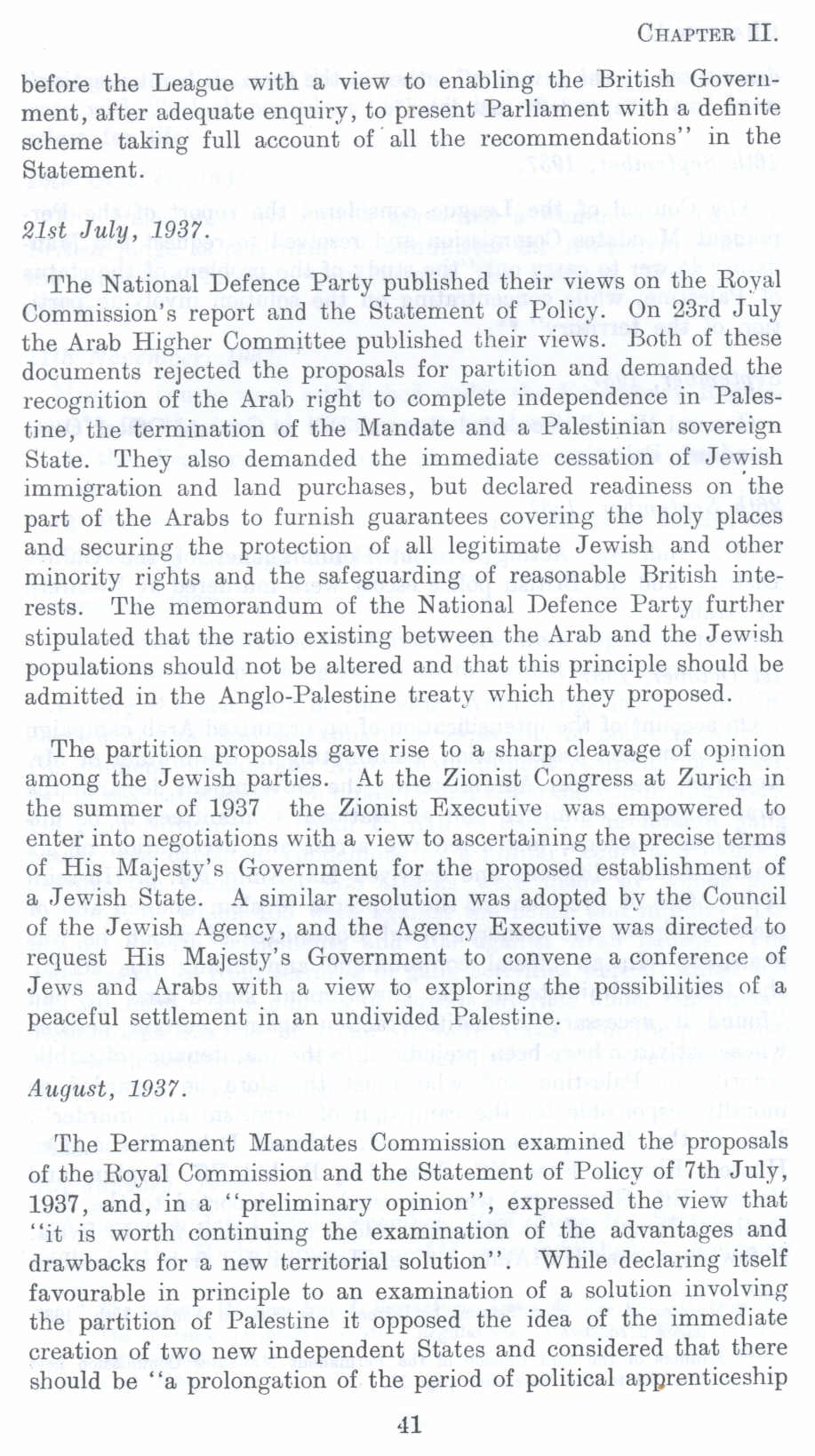| Prev | Next |  |
| Prev | Next |
| PalestineRemembered | About Us | Oral History | العربية | |
| Pictures | Zionist FAQs | Haavara | Maps | |
| Search |
| Camps |
| Districts |
| Acre |
| Baysan |
| Beersheba |
| Bethlehem |
| Gaza |
| Haifa |
| Hebron |
| Jaffa |
| Jericho |
| Jerusalem |
| Jinin |
| Nablus |
| Nazareth |
| Ramallah |
| al-Ramla |
| Safad |
| Tiberias |
| Tulkarm |
| Donate |
| Contact |
| Profile |
| Videos |
British Mandate: A Survey of Palestine: August, 1937 - The Royal Commission, the Partition Commission, and the White Paper of May, 1939. Volume I - Page 41 |
Disclaimer
The above documents, article, interviews, movies, podcasts, or stories reflects solely the research and opinions of its authors. PalestineRemembered.com makes its best effort to validate its contents.


Post Your Comment
*It should be NOTED that your email address won't be shared, and all communications between members will be routed via the website's mail server.
before the League with a view to enabling the British Government, after adequate enquiry, to present Parliament with a definite scheme taking full account of• all the recommendations'' in the Statement.
21st July, 1937.
The National Defence Party published their views on the Royal Commission's report and the Statement of Policy. On 23rd July the Arab Higher Committee published their views. Both of these documents rejected the proposals for partition and demanded the recognition of the Arab right to complete independence in Palestine, the termination of the Mandate and a Palestinian sovereign State. They also demanded the immediate cessation of Jewish immigration and land purchases, but declared readiness on 'the part of the Arabs to furnish guarantees covering the holy places and securing the protection of all legitimate Jewish and other minority rights and the safeguarding of reasonable British interests. The memorandum of the National Defence Party further stipulated that the ratio existing between the Arab and the Jewish populations should not be altered and that this principle should be admitted in the Anglo-Palestine treaty which they proposed.
The partition proposals gave rise to a sharp cleavage of opinion among the Jewish parties. At the Zionist Congress at Zurich in the summer of 1937 the Zionist Executive was empowered to enter into negotiations with a view to ascertaining the precise terms of His Majesty's Government for the proposed establishment of a Jewish State. A similar resolution was adopted by the Council of the Jewish Agency, and the Agency Executive was directed to request His Majesty's Government to convene a conference of Jews and Arabs with a view to exploring the possibilities of a peaceful settlement in an undivided Palestine.
August, 1937.
The Permanent Mandates Commission examined the proposals of the Royal Commission and the Statement of Policy of 7th July, 1937, and, in a "preliminary opinion", expressed the view that "it is worth continuing the examination of the advantages and drawbacks for a new territorial solution". While declaring itself favorable in principle to an examination of a solution involving the partition of Palestine it opposed the idea of the immediate creation of two new independent States and considered that there should be "a prolongation of the period of political apprenticeship
Page 41